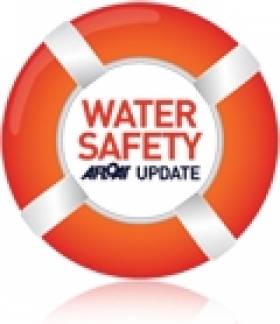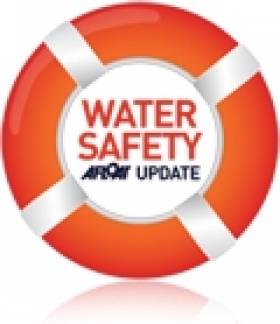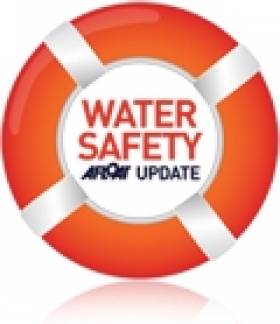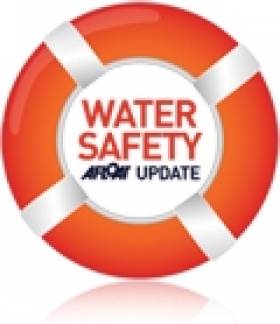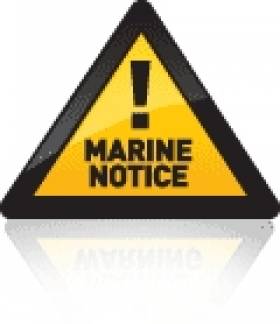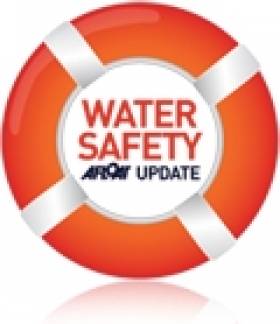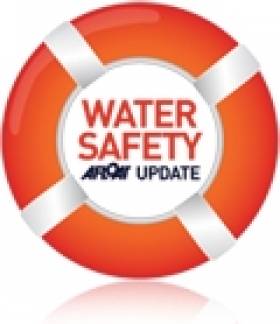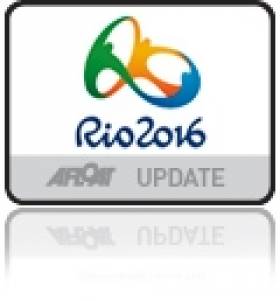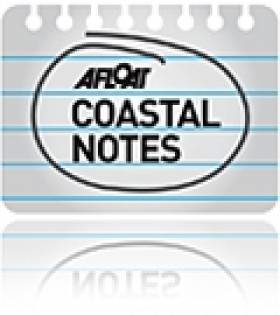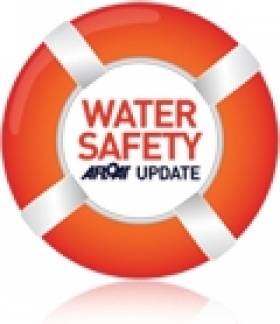Displaying items by tag: water safety
NMCI To Host International IASST Meeting & Conference
#WaterSafety - The National Maritime College of Ireland, as a member of the International Association of Safety and Survival Training (IASST), be hosting the 67th International IASST Meeting & Conference on 19-20 October 2015 at the NMCI campus in Ringaskiddy.
Registration for the conference, which is also open to non-IASST members, is now live over on the IASST website. Full details on the conference agenda are available HERE.
Follow the NMCI on Twitter, LinkedIn and the official blog to keep up-to-date about the conference.
#MarineNotice - In response to recommendations by the Marine Casualty Investigation Board (MCIB), Marine Notice No 26 of 2015 has been issued to promote and highlight the Code of Practice for the Safe Operation of Recreational Craft, as well as to underline the legal requirements in relation to the wearing and proper care of personal flotation devices, or PFDs.
It is the responsibility of owners and operators of recreational craft to ensure that a vessel is properly operated, maintained and equipped. The Code of Practice for the Safe Operation of Recreational Craft assists with this responsibility by providing safety information on legislative requirements in a simple and user-friendly way, and by giving straightforward safety advice and guidance on best practice in relation to vessel standards, equipment and operation for different types of recreational craft and their areas of operation.
The code is available free of charge on request from the Maritime Safety Policy Division (email [email protected]) and is also available to view or download from www.safetyonthewater.ie or from the DTTAS website HERE.
Requirements for the use of PFDs, meanwhile, are detailed in Marine Notices No 45 of 2012 and No 39 of 2013 as previously reported on Afloat.ie.
Number of UK Drownings at Lowest Since Records Began
#drowning – The number of accidental drownings in the UK has fallen to its lowest level since records began.
There were a total of 338 water-related deaths from accidents or natural causes across the UK in 2014, according to a report published today by the National Water Safety Forum (NWSF).
That number, from statistics published by NWSF, has fallen from 381 in 2013, and is the lowest figure since data collection began in 1983.
The NWSF's Water Incident Database (WAID) breaks down drownings and other water-related deaths by activity, age and location type.
The highest proportion of those people who have lost their lives in 2014 did not intend to be in the water - the main activity being undertaken before they died was walking or running alongside water (138 deaths, predominantly in rivers and coastal water), while 36 people drowned while swimming in unsupervised places, the next leading cause.
Last year's figures show that, like previous years, males (271) are more likely to drown than females (71), with a higher number of deaths for males than females in every single age bracket recorded.
Men aged between 25-29 are a particular concern, with 29 dying in 2014. Children aged up to 19 account for just over one in 10 of all deaths (38), with 21 of those in the 15-19 age bracket.
July saw the biggest spike in the number of deaths (43, up from 20 in June and 29 in August), while January was also a problem month, with 38 people killed.
George Rawlinson, chairman of the NWSF, said: "It's really positive that we're starting to see a decline in the numbers of accidental drownings but any loss of life is tragic and there's more that we can do to reduce these figures further. WAID provides vital insight that helps interested groups shape interventions to protect those people most at risk.
"The NWSF and their respective organisations work tirelessly to promote education and water safety and together are now developing a strategy that could be adopted nationally; this will provide an important framework for identifying how improvements in safety and education could be made to tackle this problem.
#WaterSafety - Recreational divers must follow safety guidelines to the letter, a coroner has urged during the inquest into the death of two diving enthusiasts off West Cork last summer.
As previously reported on Afloat.ie, the two men in their 60s, who were understood to be experienced divers, died while exploring the wreck of a German U-boat off Castlehaven on 2 July last.
Cork City coroner Dr Myra Cullinane this week ruled misadventure in the deaths of 65-year-old Stephen Clarke from Surrey and 61-year-old Jonathan Scott from Western Australia, as the Irish Examiner reports.
The inquest heard that both men had overstayed their 'bottom time' at the wreck 42 metres below the surface and succumbed to the bends after making a rapid ascent.
It was also found that the duo's air regulators were not appropriate for operation at such depths, which would have made breathing difficult.
The Irish Examiner has much more on the story HERE.
Elsewhere, an Irish student who was paralysed while diving into the water at a Portuguese beach in 2012 has spoken of the moment that changed his life forever.
Jack Kavanagh was an experienced lifeguard and surfing instructor before the dive into a hidden sandbank that broke his neck with a "little click".
But as the 22-year-old tells the Irish Mirror: "I was very calm. I knew immediately what had happened. I was so used to being in the water so I didn't panic at all... As a lifeguard I had done training, I knew all the signs and symptoms."
Since then he has defied the preconceived notions of his disability, returning to Trinity to complete his pharmacy studies – and next week is headed to the States with friends for a J1 working holiday.
And that's not to mention the 'Sail for Jack' organised by the Royal St George last August to raise funds for his specialised supports and treatment.
#MarineNotice - Marine Notice No 8 of 2005 supplemented by Marine Notice No 16 of 2011 provided information on eight types of liferaft, which the Department of Transport, Tourism and Sport (DTTAS) accepts for use on small fishing vessels that are not required to carry a SOLAS/MED-approved liferaft.
The department now advises, in Marine Notice No 20 of 2015, that an additional liferaft has been deemed acceptable for use on such vessels. For clarity, the complete list – including the additional liferaft type now added – is shown below.
Accepted non-SOLAS/non-MED inflatable liferafts:
- DSB 4 - Person Inflatable Liferaft with “SOLAS B Pack”
- RFD Surviva 4 - Person Inflatable Liferaft with “SOLAS B Pack”
- RFD SEASAVA PRO ISO 9650 4 - Person Inflatable Liferaft with “SOLAS B Pack”
- Viking DK 4 - Person Inflatable Liferaft with “SOLAS B Pack”
- Zodiac 4 - Person Inflatable Liferaft with “SOLAS B Pack”
- EUROVINIL ISO/DIS 9650 4 - Person Inflatable Liferaft with “SOLAS B Pack”
- Sea-Safe 4 person inflatable liferaft :ISO 9650.1 group A Type 1 with “SOLAS B pack”
- Seago - ISO 9650-1 SOLAS B pack – 4 PERSON Liferaft
- Haining, Liferaft model HNF-YT IS09650-1 – with SOLAS B pack
#WaterSafety - Families were spotted risking their lives on Howth's exposed harbour walls in recent stormy weather conditions.
TheJournal.ie reports with photos of some parents with children as young as toddler age frolicking under the waves as they crashed over the fishing village's east pier – oblivious to the danger of being knocked over and swept into the cold harbour waters.
In January last year a man was lucky to escape with just an ankle injury when he was swept by a wave from the upper portion of the same wall to the lower section 10 feet below.
Yet despite repeated water safety warnings and appeals from the likes of Irish Water Safety, many persist in defying the risks – such as this family photographed at Bullock Harbour in February 2014.
New Website For Schools Promotes 'Water Safety Fun'
#WaterSafety - Irish Water Safety (IWS) has launched its new water safety website for primary school teachers, pupils and parents.
The site for IWS' Primary Aquatic Water Safety programme, or PAWS, combines clear, simple water safety messages with material for use in classrooms, as well as free certificates for children who complete the programme.
Though designed for delivery in primary schools, IWS says the resource can help generally to change the attitudes and behaviours of children playing in, on and near the water – whether by the sea, on the beach, by the river, canal or any body of water.
Noting that 30 children aged 14 and under drowned in the last decade, IWS hopes that teachers will set aside some class time for the new website before the summer holidays to help everyone respect the water and make 'Water Safety Fun'.
#Rio2016 - Annalise Murphy, James Espey, Ryan Seaton and Matt McGovern are already Rio-bound - but could their sailing venue at the 2016 Olympics be moved out of Guanabara Bay?
That's what the sport's world governing body has threatened to do if city authorities don't clean up their act, according to the Associated Press.
As previously reported on Afloat.ie, local Olympic officials have confirmed that the notoriously polluted waters of Brazil's largest city will not be fully cleaned as promised in time for next summer's Olympiad.
The sailing venue was slammed as "absolutely disgusting" by Irish Olympic sailing coach Ian Barker on a visit to Rio at the end of 2013.
Yet while hopes remained in the interim that city officials would make good on their assurances of safe and clean waters for sailors, those have been dashed in recent weeks – with safety concerns over floating rubbish and the discovery of a new 'super-bacteria' in one of the many sewage-filled rivers that flow into the bay.
That's not to mention similar worries over the venue for rowing and canoeing at the Rodrigo de Freitas Lagoon – recently the site of an extensive fish kill.
The situation has now prompted the ISAF to call on the International Olympic Committee (IOC) to step up the pressure on Brazil's politicians, with the sailing body's Alastair Fox claiming he and fellow officials were "frustrated with it all".
In a phone interview with the AP's Stephen Wade, Fox said: "We are going to review the situation and make some more recommendations – demands is probably the right word – to make sure things are done."
The ISAF's head of competitions also suggested that "if we have to race all the races outside the bay, if that's what it comes to, to ensure a fair regatta, then that's something we're going to explore and could do."
The AP has much more on the story HERE.
#OnTheWater - This week's unseasonably fine weather saw thousands flock outside to enjoy the sunshine - and many of them headed to Ireland's finest beaches, some of which were highlighted by JOE.ie.
Among the most beautiful stretches of sand selected by the website include Brittas Bay – a perennial favourite in Dublin and Wicklow alike – as well as Inchydoney in West Cork, surfers' choice Tullan Strand in Bundoran, and the sheltered calm of Keem Beach on Achill Island.
All are recommended for their relaxing potential and arresting views as much as for swimming.
But one place where swimming is definitely not recommended is at Dublin's Docklands, where young people were seen leaping from a quayside roof into the River Liffey yesterday (Friday 10 April).
TheJournal.ie has an image of the group jumping from the roof of a restaurant on North Wall Quay just west of the Samuel Beckett Bridge, flying over the heads of unsuspecting passers-by on the footpath below.
The Irish Coast Guard has reiterated previous warnings "not to engage in this particular type of activity" which amounts to "literally jumping into the unknown".
Lifeguards Return To Causeway Coast For Easter Break
#WaterSafety - RNLI lifeguards will be making a welcome return to a number of selected beaches on the Causeway Coast and in Co Down next weekend ahead of the Easter holidays.
After undergoing intensive training in preparation, the charity’s lifeguards will be keeping visitors safe on Tyrella Beach in Co Down and on Benone Strand, Portstewart Strand, East and West Strands in Portrush and Whiterocks on the Causeway Coast.
Lifeguards will begin their patrols on Good Friday (3 April) between 11am and 7pm on the Causeway Coast and between 10am and 6pm in Co Down and continue daily to Sunday 12 April.
Cover will be provided every weekend until the end of June ahead of the summer season, when a daily duty will get underway on all 10 RNLI lifeguarded beaches in Northern Ireland.
"Our lifeguards are looking forward to going on patrol and meeting people who come to the beach," said RNLi lifeguard manager Mick Grocott. "We would encourage visitors to speak to our lifeguards, ask for safety advice, and most importantly call on them should they find themselves in difficulty."
Ahead of Easter, the RNLI has reiterated its advice to people planning a beach trip to stay well away from dangerous cliff edges which have been impacted by recent weather conditions.
Winter storms changed the profile of all the beaches with extensive damage at Whiterocks, Portrush East and Portstewart where there are high and unstable sand cliffs.
The RNLI’s advice for anyone planning a trip to the beach is to: check weather and tide times before you go and if planning to go into the water; only go swimming at a lifeguarded beach, between the red and yellow flags; and avoid using inflatables in strong winds or rough seas.
If you get into trouble, stick your hand in the air and shout for help and if you see someone else in trouble, tell a lifeguard. If you can’t see a lifeguard, call 909 or 112 and ask for the coastguard.
For more safety information on the beach you plan to visit, you can download the RNLI’s Beachfinder app to find lifeguarded beaches and more information.



























